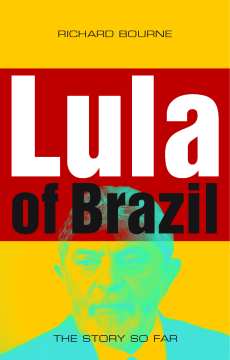
Additional Information
Book Details
Abstract
Ex-President Lula of Brazil has a life that reads like a film script.
The child of a dysfunctional family, his early life was one of poverty and chaos. In the 1970s, at a time when his country and continent were ruled by right-wing dictators, he switched from football-mad metalworker to militant trade union leader. Dissatisfied with the power of existing parties to bring about change, he founded the Partido dos Trabalhadores, the Workers Party. He was elected as president in 2002 and again in 2006. As a progressive leader in a globalizing world, he has walked a difficult tightrope in international relations with the US, Africa and the Middle East; and in trying to improve the lot of poor and black Brazilians at home.
Lula of Brazil is an objective study of an unfinished political odyssey; the story of one man set against the contemporary history of a major emerging power. From climate change to inequality, Lula and his country are grappling with the greatest challenges facing the modern world.
Richard Bourne first visited Brazil in 1965 as a journalist on The Guardian. He subsequently wrote several books on Brazil and Latin America more generally. He was the first director of the Commonwealth Human Rights Initiative in 1990 and founded the Commonwealth Policy Studies Unit at London University's Institute of Commonwealth Studies. He returned to Brazil on his retirement, in order to research the life of Lula.
'President Lula is perhaps the most elusive figure to have reached the top of Brazilian politics, and Richard Bourne's fine study of the man and his background is a well-researched and illuminating report. This is a trenchant, warts-and-all account of Lula's career.'
Richard Gott
'Richard Bourne has produced a clear-eyed and eminently readable biography; this book is a fine introduction to the politics of modern Brazil.'
Hugh O'Shaughnessy
'A much-needed full-length portrait of the latest South American political phenomenon. Timely reading for anyone seeking to understand Brazil's newest experiment in democracy.'
Thomas E. Skidmore, author of Politics in Brazil, 1930-1964: An Experiment in Democracy
'Essential reading for anyone interested in Latin America's new left and the emergence of Brazil as a regional power, and maybe in the future a world power.'
Nelson Franco Jobim
Table of Contents
| Section Title | Page | Action | Price |
|---|---|---|---|
| Bourne full text | i | ||
| Bourne pre | i | ||
| Bourne_Ch01 | 1 | ||
| Bourne_Ch02 | 24 | ||
| Bourne_Ch03 | 49 | ||
| Bourne_Ch04 | 76 | ||
| Bourne_Ch05 | 102 | ||
| Bourne_Ch06 | 127 | ||
| Bourne_Ch07 | 153 | ||
| Bourne_Ch08 | 176 | ||
| Bourne_Ch09 | 196 | ||
| Bourne_Ch10 | 209 | ||
| Bourne_Ch11 | 233 | ||
| Bourne_Ch12 | 255 | ||
| Bourne_Ch13 | 259 |
